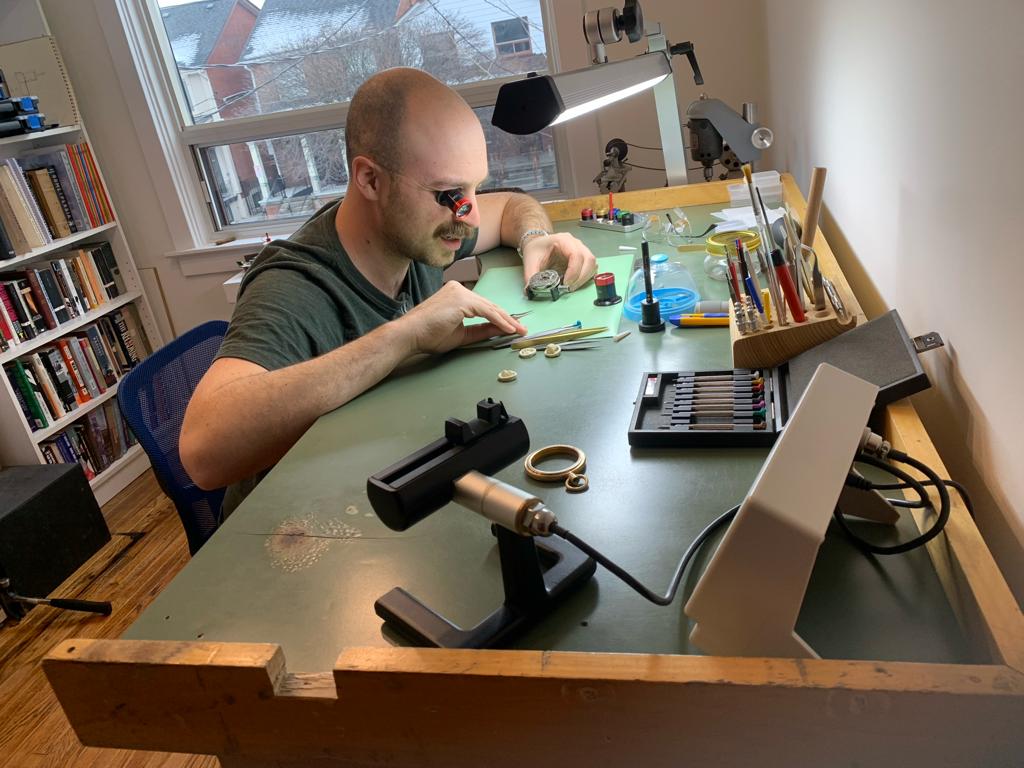During the COVID-19 lockdown, John Cairncross thought he needed a hobby. Instead, he found a new career. In 2020 Cairncross started watching YouTube videos of people repairing watches. In December 2023, he successful defended his PhD in Economics and, in March 2024, he will complete his term as an apprentice watchmaker at Rolex.
An economic historian and applied microeconomist, Cairncross will not completely rule out returning to academia at some point in the future, but for now, he’s happy to be part of an industry experiencing a renaissance. The unorthodox career change, he says, is not completely out-of-sync with his dissertation research. Cairncross’ favourite watches to work with are the American pocket watches.

“My research was about the American mid-West and the mass production of watches started there,” he said in a recent telephone interview. “They’re not high end, but they are of a nice, consistent quality and, if they break, they can be made whole again. It might be old-fashioned, but we’re living in a disposable society, and one of the things I like about these watches is that they can be repaired and kept going.”
Traditionally, PhD programs have been considered a direct track into academia and a career dedicated to teaching and research. While becoming a professor is a cherished dream of many, but not all students, it’s also a dream that can be revised. In recent years at the Department of Economics, University of Toronto, that traditional career track has split toward different destinations with PhD candidates on the job market interviewing and entertaining offers from universities, consulting firms, and from governmental and international organizations like the Bank of Canada and the International Monetary Fund.
“Almost half of our PhD graduates go on to careers outside academia,” said Professor Ettore Damiano, “and I have the impression that both those in academia and outside are happy with their careers. Economics, as a discipline, leads to an understanding of the world and its systems that helps students identify opportunities for themselves. It’s always exciting to see what our graduates go on to do in expected and unexpected ways.”
While Cairncross’ choice to pursue his trade with the luxury watchmaker falls into the unexpected career category, he has no regrets.
“People are generally still young when they start a PhD program and they want to explore,” he said. “They are all – we are all – are constantly learning more about ourselves all the time, regardless of whatever else we’re exploring or focussing on. Thinking can and should change as new information presents itself. COVID really was a time of enforced isolation and introspection, I just found another part of myself that I wanted to explore.”
The belief that the time spent learning is never wasted time applies to Cairncross and the choices he has made.
“I am proud that I stuck it out and finished,” Cairncross said. “While it’s true that no one I work with now really knows or cares what research I did, but when you earn a PhD, people recognize you’re a serious person and a serious thinker. It says a lot about my character and who I am.”
Return to the Department of Economics website.
Scroll more news.
